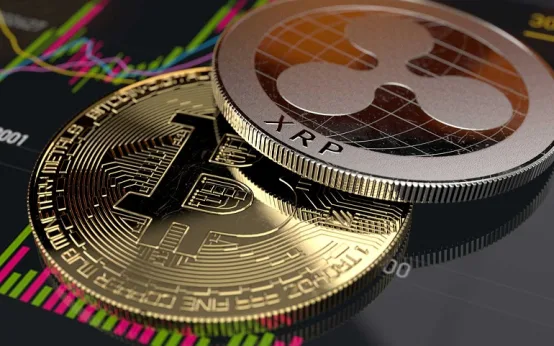As the cryptocurrency market matures, Bitcoin is no longer the only game in town. Altcoins — alternative cryptocurrencies to Bitcoin — are gaining traction as serious investment options for those seeking diversification and higher growth potential.
In 2025, altcoins are continuing to evolve beyond hype-driven narratives. With use cases ranging from decentralised finance (DeFi) to gaming and infrastructure, certain coins are proving to have real-world value, attracting both retail and institutional attention.
For UK investors, the altcoin market presents both an opportunity and a challenge: with thousands of tokens available, knowing where to place your money is critical. This guide identifies key altcoins worth watching and the factors that make them stand out in the current crypto landscape.
What Makes an Altcoin a Strong Investment?
Before diving into specific picks, it’s essential to understand what separates a quality altcoin from the rest. Many coins suffer from weak fundamentals or exist purely for speculative purposes.
When evaluating altcoins, consider the following criteria:
- Real-world utility: Does the coin solve a meaningful problem or improve an existing system?
- Strong development team: Are the developers active, transparent, and experienced?
- Market adoption and partnerships: Are businesses or platforms using the coin? Does it have reputable backing?
Additionally, look for projects with clear roadmaps, solid community support, and a responsible token supply strategy. These factors can contribute to long-term sustainability and reduce the risk of sudden collapse.
Transparency, longevity, and community involvement are also indicators of a coin’s viability. Many promising projects in the past failed due to poor communication, abandoned roadmaps, or insufficient demand. By focusing on coins with consistent development and engagement, investors can better position themselves to avoid pitfalls.
Top Altcoins for 2025
Here are some of the most promising altcoins in 2025 based on utility, innovation, and growth potential:
- Ethereum (ETH): While no longer an “alternative” in the traditional sense, Ethereum still leads the altcoin space. With its widespread adoption for smart contracts and DeFi applications, it remains a foundational player. Upgrades to Ethereum 2.0 have also addressed scalability and energy use concerns.
- Chainlink (LINK): As the go-to decentralised oracle network, Chainlink connects smart contracts to real-world data, making it indispensable for many DeFi and NFT applications.
- Polygon (MATIC): Focused on solving Ethereum’s scalability issues, Polygon is becoming a hub for affordable and fast transactions. It’s attracting both Web3 developers and traditional businesses entering blockchain.
- Solana (SOL): Known for its high throughput and low transaction costs, Solana continues to push boundaries in DeFi and NFT infrastructure — though investors should monitor its network stability.
- Arbitrum (ARB): As a layer 2 scaling solution for Ethereum, Arbitrum offers faster and cheaper transactions, helping users access DeFi apps without high fees.
These picks are based on market performance, technological innovation, and real-world application — not hype. They also benefit from growing ecosystems, which can drive organic demand and developer interest, creating further growth momentum.
Risks to Consider When Investing in Altcoins
Unlike Bitcoin, altcoins tend to be more volatile and vulnerable to market manipulation. Their smaller market caps make them attractive for short-term speculation but risky for long-term holding without careful research.
Common risks include:
- Regulatory scrutiny: The UK Financial Conduct Authority (FCA) has increased its focus on crypto assets, and unclear regulations could impact trading or custody of certain tokens.
- Security flaws: Bugs in code or vulnerabilities in smart contracts can result in lost funds — particularly in newer or poorly audited projects.
Additionally, market sentiment can shift quickly. Altcoins often experience exaggerated booms and busts. One news event or influencer comment can spike or crash prices in hours. UK investors should approach with caution, diversify holdings, and set stop-losses or take-profit levels when relevant.
Diversifying Within the Altcoin Market
Rather than betting on a single altcoin, many UK investors opt for diversified portfolios. This can be done by allocating capital across categories — for example:
- Infrastructure (e.g. Ethereum, Solana)
- DeFi (e.g. Uniswap, Aave)
- Oracles (e.g. Chainlink)
- Interoperability (e.g. Cosmos, Polkadot)
Another option is investing via crypto index funds or thematic ETFs (where available), which offer exposure to multiple altcoins with reduced risk.
Balanced diversification is key — not just across coins, but across sectors and blockchain ecosystems. This approach reduces exposure to isolated failures while maintaining upside potential if a particular niche experiences significant growth.
Building a Smart Altcoin Strategy in 2025
The altcoin space remains one of the most dynamic and potentially rewarding areas of finance — but it requires a disciplined approach. For UK investors, the key to success lies in thorough research, a long-term perspective, and staying updated on both technological and regulatory changes.
By focusing on altcoins with strong fundamentals and real use cases, you can build a portfolio designed not just for speculation, but for meaningful, long-term gains. Stay vigilant, diversify wisely, and never invest more than you’re prepared to lose — and altcoins could become a valuable part of your financial strategy in 2025 and beyond.

 How to Avoid Credit Card Debt in the UK
How to Avoid Credit Card Debt in the UK  Is Solana the Next Ethereum? Exploring Its Potential
Is Solana the Next Ethereum? Exploring Its Potential  Inflation vs. Recession: Impact on Your Wallet Revealed
Inflation vs. Recession: Impact on Your Wallet Revealed